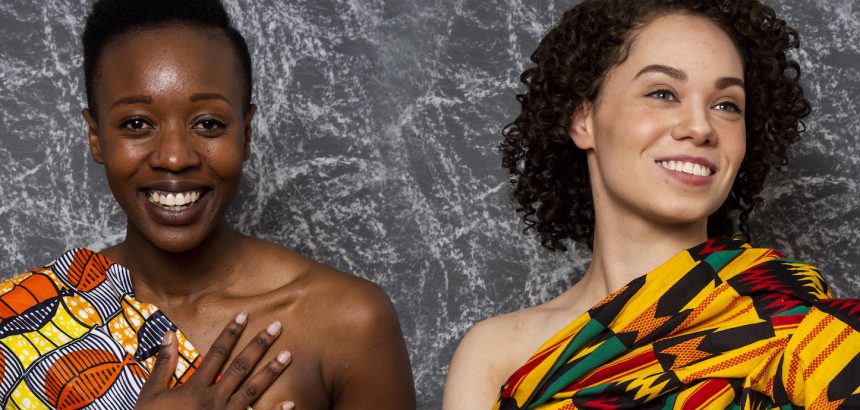One of the things I’ve noticed about myself as I’ve aged is that, yes, I have matured. Things don’t bother me the way they used to. I don’t worry as much about what people think of me. That’s been a nice part of growing up. But when I read Jocelyn Bioh’s School Girls; or the African Mean Girls Play, I am reminded how close to the surface my insecure and ravenous inner teenage girl is.
Set in an exclusive Ghanaian boarding school, Bioh’s play beautifully creates the battleground that is teenage girlhood. In the halls of a high school there is no room to breathe, no place to escape to. Everything that happens there is the most important thing that ever happened there. It’s not being dramatic – it’s just that teenagers play life at a higher frequency than adults do.
In the play notes, Bioh talks about a controversy during the 2011 Miss Universe Ghana pageant. The winner was an American-born, mixed-race woman whom the Ghanaian officials had sought out during her reign as Miss Minnesota. Bioh writes:
“She beat out two of Ghana’s most famous models at the time. Erica went on to the Miss Universe pageant that year where she did not place. I thought that story was pretty damn interesting and wanted to explore how the Western idea of colorism infiltrated into African society.”
School Girls offers a glimpse, rarely seen in Western theatre, into the complex relationships between Continental African and African American communities.
Set in 1986, the play draws on a time when American power and prowess were at a peak internationally. When a biracial American student transfers to the school, that American Dream™ shine, with its promise of power and wealth, upsets the balance in the delicate ecosystem that is a teenage girl crew.
Shadism. Colonialism. Capitalism. Beauty. Class. In the minds and mouths of teenage girls, these systems of societal control become weaponized. These young women are whip smart, feel deeply, and can be brutal power brokers in the commodity of friendship.
School Girls is the fifth partnership between Obsidian Theatre and Nightwood Theatre; the collaboration began in 2001 with Obsidian’s first-ever production, Djanet Sears’ Adventures of a Black Girl in Search of God. That production catapulted Obsidian from a small collective of Black artists producing a new script into a multi-Dora-nominated powerhouse. Whenever Obsidian and Nightwood come together, we do something special that speaks to the heart of both our companies.
When I asked Philip Akin, Obsidian’s artistic director, about the choice to program this play, he had two main reasons. First, School Girls presents the opportunity to have eight Black women onstage, a rare and coveted opportunity in Western theatre. And second, it is a comedy: a biting, satirical, almost acidic, fast-paced, character-driven play that is, no exaggeration, funny as hell.
When done well, comedy has a particular capacity to change audiences’ hearts and minds. I think this is why it is so rarely attempted in contemporary theatre, because truly good and effective comedy is a rare thing. It is through comedy that School Girls is such an effective piece of political art. And this is a fiercely political play: the complexities of these young Black women coupled with biting satire that takes aim at the weighty societal constructs that have been placed on them; teenagers on the cusp of adulthood navigating systemic power not just intellectually, but emotionally and spiritually.
Obsidian’s production of School Girls will, no doubt, take us all to class.
photo by Tanja-Tiziana


